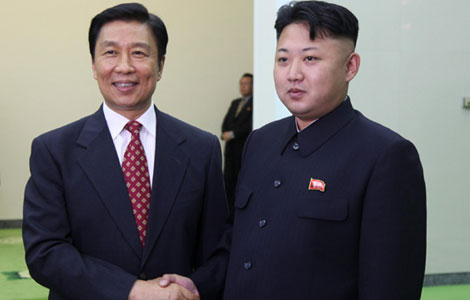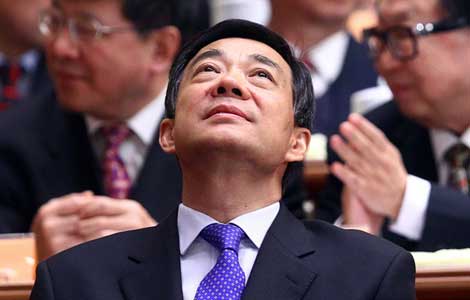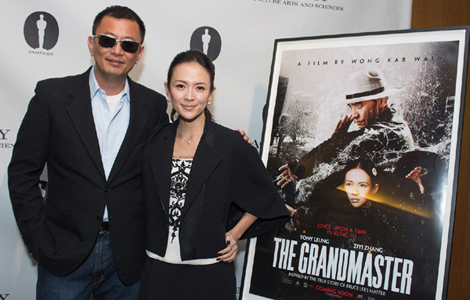A pioneering endeavor
Updated: 2013-07-26 08:35
By Chen Yonglong and Xue Junying (China Daily)
|
||||||||
To realize their shared vision of a new type of relationship, China and the US must work together step by step
Differences and diversity do not equate to conflict in a diversified world. That some of their differences cannot be resolved does not mean that China and the United States cannot become partners.
Former US secretary of state Henry Kissinger often says that there is a cultural difference between Chinese and Americans when it comes to dealing with a problem. He says that Americans pay more attention to immediate interests, while the Chinese take a long-term view.
In other words, although their approaches to problems and their way of dealing with them may differ, that does not negate the fact they both want to resolve the problem. Focusing on realistic benefits does not mean a lack of foresight, while focusing on the long-term benefits does not mean ignoring immediate interests. It means both countries making some compromises and working step by step toward their shared vision of a new type of relationship between major powers.
Understandably, their different development stages and political systems mean there are big differences in how the bilateral relationship is viewed in the two countries. But there is a shared desire to find the common ground among their differences.
At the Bo'ao Forum for Asia two years ago, former US secretary of state Condoleezza Rice said to me that there were many differences between China and the US, some of which need to be overcome, some of which offer a chance to learn from one another. For example, China has 5,000 years of culture that the US can learn from, while the US, with a history of only 200-plus years, has advanced technologies and management that China can learn from.
The key to a harmonious relationship is finding common purpose and common ground while shelving or defusing differences. This will be a major test for the leadership in China and the US. Chinese President Xi Jinping and his US counterpart Barack Obama have already reached a consensus on building a new type of relationship between an existing power and a rising power in principle, it is now a case of putting flesh on the bone. If that momentum can be maintained, the recent Sunnylands Summit between Obama and Xi will prove to be of great historical significance.
For the present, in-depth communication between the two leaders has been established in an easy and lively form. Isn't this the way to overcome differences and learn from one another?
After all dialogue is essential, as there are no examples to follow. The attempt to build a new type of relationship between major countries is a pioneering endeavor. Raising the proposal fully reflects the broad-minded strategic ambition and pragmatic attitude of the leaders of the two countries, which has put positive energy into the healthy development of the bilateral relationship.
Just think, who would have imagined, even just a few years ago, that relations between China and the US, countries which have totally different systems and whose relations have experienced many chills over the past 40 years, would be at this point today. In this sense, China-US relations have set a good example for others to follow.
Kissinger said recently, that the US and China came together because they shared a common enemy. Today they come together because of a shared vision of a better world in the future. They believe that the relationship between China and the US will become a new type of partnership featuring some competition, but characterized by cooperation. This is because their shared vision of a new type of relations between major powers offers benefits for both sides.
Two things can happen in the context of commons and differences: one is principle issues which allow no concessions; the other is some issues that are so sensitive that they can be mistaken for principle issues related to bilateral relationship. In fact, neither of these need result in a deadlock in relations.
Chen Yonglong is director of the US Center of the China Foundation for International Studies. Xue Junying is a researcher at the US Center of the China Foundation for International Studies. www.chinausfocus.com
(China Daily USA 07/26/2013 page15)

 Top DPRK leader meets Chinese vice-president
Top DPRK leader meets Chinese vice-president
 US does not plan decision on Egypt coup
US does not plan decision on Egypt coup
 Bo Xilai indicted for corruption
Bo Xilai indicted for corruption
 Korean War veterans return to peninsula
Korean War veterans return to peninsula
 Tourist safety a priority in S China Sea
Tourist safety a priority in S China Sea
 Death toll in Spain train crash rises to 77
Death toll in Spain train crash rises to 77
 Royal baby named George Alexander Louis
Royal baby named George Alexander Louis
 'The Grandmaster' takes center stage
'The Grandmaster' takes center stage
Most Viewed
Editor's Picks

|

|

|

|

|

|
Today's Top News
Scholars provide a tour 'around the world'
GM says weakness in Asia leads to profit drop
Syrian rebels ask Kerry to send US arms quickly
Flights over sea 'routine training'
US does not plan decision on Egypt coup
Congress approves NSA spying program
Japanese PM unlikely to visit Yasukuni Shrine
Girl, 2, thrown to ground; suspect detained
US Weekly

|

|







